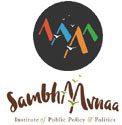“Eaters must understand that eating takes place inescapably in the world, that it is inescapably an agricultural act, and that how we eat determines, to a considerable extent, how the world is used. This is a simple way of describing a relationship that is inexpressibly complex. To eat responsibly is to understand and enact, so far as one can, this complex relationship”.
Wendell Berry, “The Pleasures of Eating”
As human beings, we have in common that we all eat. Yet, in today’s world, most of us think of eating only in terms of consumption of food, rather than as a way of participating in a web of relationships. Food sustains the human body, it can be a source pleasure, and often a way to express nurture and community, but it also connects us to complex webs of ecology, culture, history, and politics.
In the context of globalization and market liberalization, with the expansion of corporate agriculture, processing and retailing of foods that come to us from ever-growing distances, in increasingly processed and packaged forms, the answers to these questions are often unclear. In the workshop, we used the lens of ‘food chains’ to trace some of the complex relationships that constitute food in the contemporary world and in our lives. We thus aim to gain a basic understanding of industrial food chains, by looking at corporate-dominated agriculture and food processing industries, fossil-fuel fed farming, toxic ‘food’ additives, ecological degradation and lifestyle diseases. How do industrial food chains work? Who benefits and who loses? How does it affect us?






